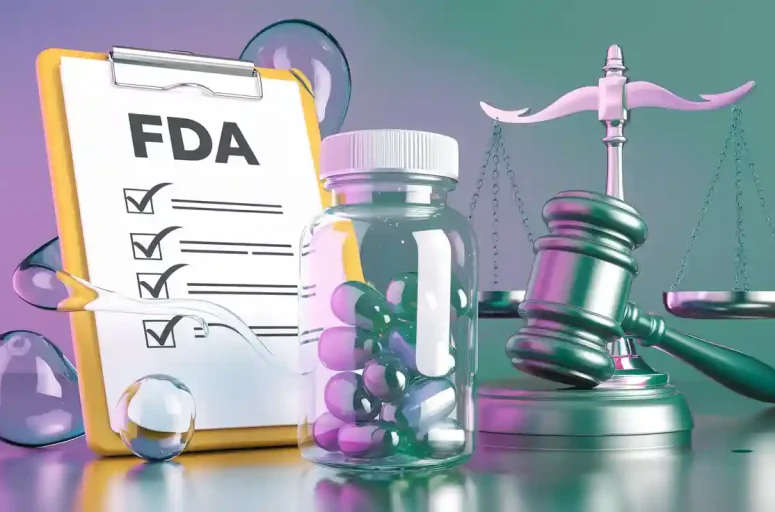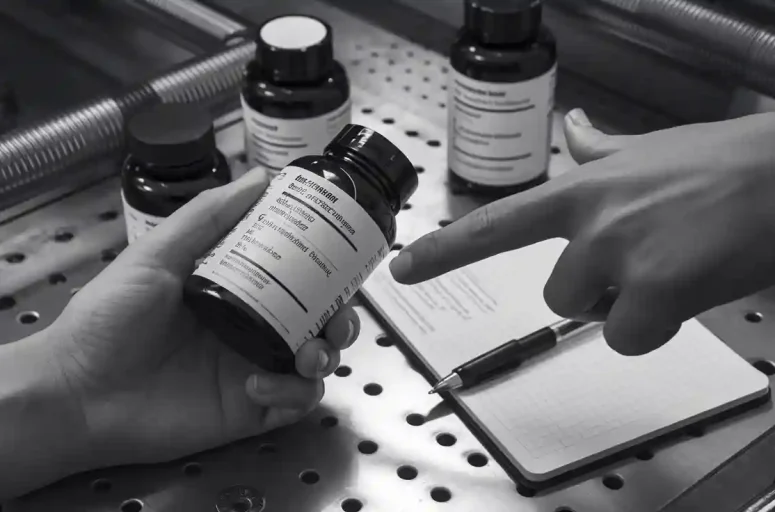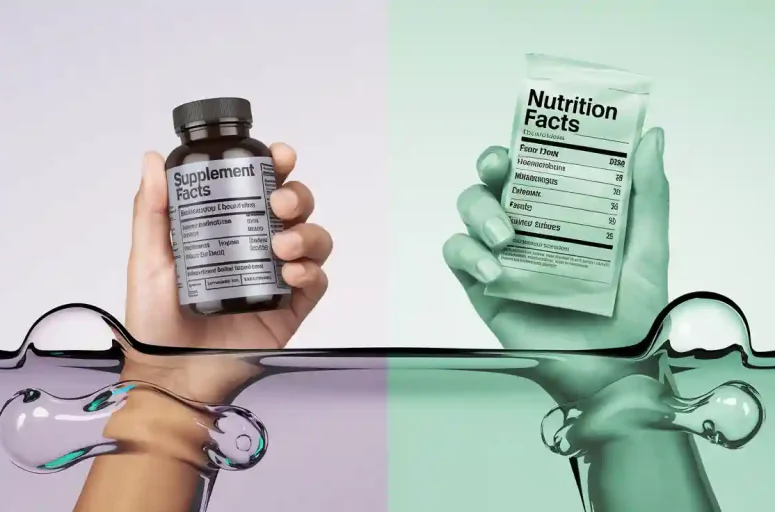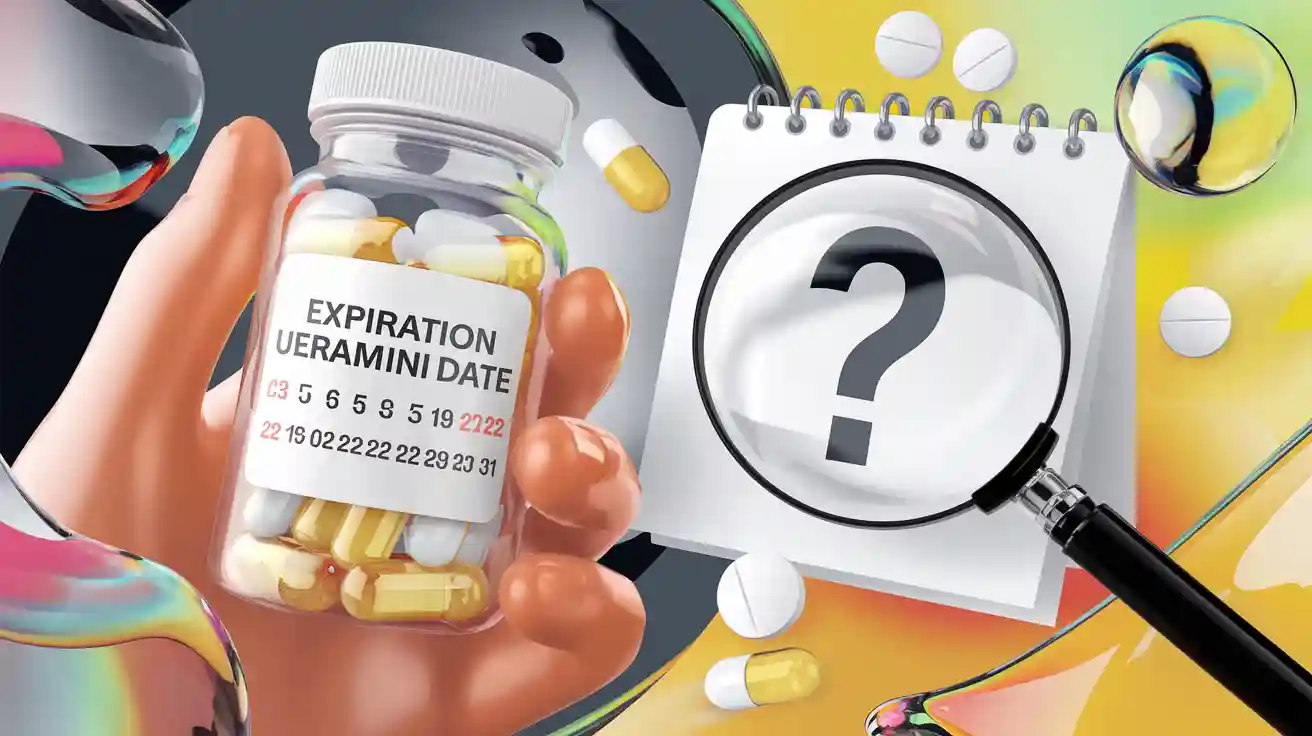
Most expired supplements do not harm you, but their potency can decrease after the expiration date. Scientific studies show that many products retain effectiveness well past expiration, though some supplements lose potency sooner. Relying on expired supplements for nutrition can put you at risk for deficiencies. Proper storage extends shelf life, so keep bottles away from heat and moisture. Always inspect supplements for changes before use.
Remember, supplement expiration dates safety focuses on effectiveness, not toxicity.
This information is for general informational purposes only. Consult your healthcare professional before making decisions about supplement use.
Key Takeaways
Expiration dates show when supplements keep full strength, not when they become unsafe.
Most expired supplements do not harm you but may lose effectiveness over time.
Proper storage in cool, dry, and dark places helps keep supplements potent longer.
Check supplements for changes in smell, color, or texture before use to avoid spoilage.
High-risk groups like children, pregnant women, and the elderly should avoid expired supplements.
Liquid supplements, probiotics, and gummies spoil faster and should not be used past expiration.
Discard supplements with damaged packaging or signs of mold, clumping, or bad odor.
Dispose of expired supplements safely by mixing with undesirable substances and using local take-back programs.
Expiration Dates Explained
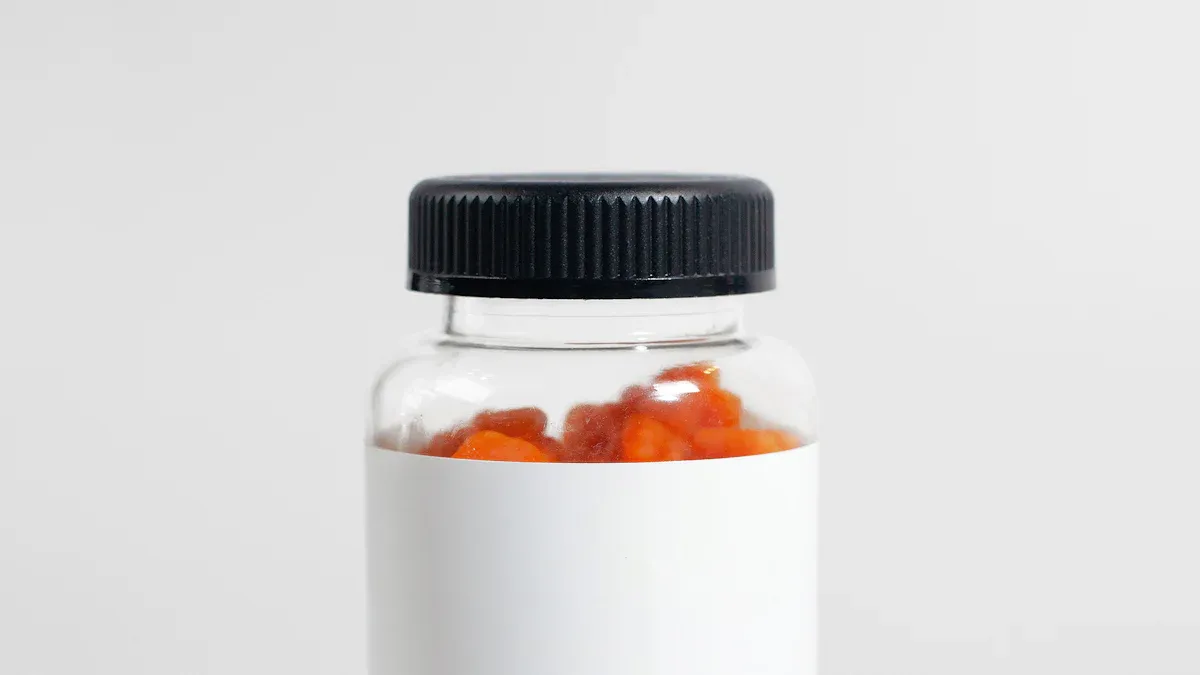
What Is an Expiration Date?
When you look at a supplement bottle, you often see an expiration date, a best by date, or a use by date. These dates tell you how long the manufacturer guarantees the full strength of the supplement. Many people think expiration dates mean the product becomes unsafe after that day. In reality, expiration dates show the time frame when the company promises the vitamin potency and quality. After this date, the supplement may lose some effectiveness, but it usually does not become harmful.
Note: Expiration dates are not the same as safety warnings. They are more about quality and vitamin potency than about health risks.
In the United States, there is no federal law that requires dietary supplements to have expiration dates. The FDA does not mandate these dates on supplement labels. Manufacturers add expiration dates or best by dates voluntarily, based on their own testing and quality standards. Here is a summary of the legal framework:
Provision | Description |
|---|---|
Supplements must meet good manufacturing practices (cGMP), which may include expiration date labeling when necessary. | |
DSHEA Section (g)(2) | The FDA can set cGMP rules for supplements but cannot require expiration dates without proper scientific methods and rulemaking. |
Most companies include expiration dates to help you know when the product will have the highest vitamin potency.
How Are Expiration Dates Set?
Manufacturers use stability testing to decide expiration dates. They store supplements under different conditions, such as heat and humidity, and check the vitamin potency at regular times. This process helps them estimate how long the supplement will stay effective. Factors like ingredient type, packaging, and storage conditions all affect the shelf life.
Good Manufacturing Practices (GMP) require companies to track production batches and use manufacturing dates.
Stability testing checks how long ingredients keep their strength.
Packaging and storage play a big role in how long supplements last.
Manufacturers often set expiration dates conservatively. They want to make sure you get the full strength of the supplement until the date listed. Sometimes, actual stability data shows supplements last longer than the expiration date suggests. Companies may even add extra ingredients at first to ensure vitamin potency remains high until the end.
Potency vs. Safety
You might wonder if taking a supplement after its expiration date is dangerous. In most cases, expired supplements are not harmful. The main concern is that the vitamin potency drops over time. Regulatory agencies focus on potency loss, not safety risks, after expiration dates. Manufacturers must guarantee 100% potency until the expiration date, but after that, the supplement may not work as well.
Expiration dates mainly signal when potency may decline, not when a product becomes unsafe.
Most expired supplements do not cause harm, but they may not provide the intended health benefits.
Quality markers like ingredient purity and third-party testing are more important for safety than expiration dates alone.
Many people confuse expiration dates with safety warnings. Remember, the expiration date is about getting the best results, not about avoiding danger.
Medical Disclaimer:
This information is for general informational purposes only and does not constitute medical advice. Always consult your healthcare professional before making decisions about supplement use.
Supplement Expiration Dates Safety
Are Expired Supplements Harmful?
You may wonder if expired vitamins pose a danger to your health. Most expired supplements do not become toxic after the expiration date. Manufacturers design solid forms like tablets and capsules to remain stable for long periods. Liquid supplements, such as solutions or suspensions, lose potency faster and may present more risks. The main concern with supplement expiration dates safety is not toxicity but reduced effectiveness.
Here is a summary of what experts and agencies report about expired supplements and possible side effects of taking expired vitamins:
Aspect | Evidence Summary |
|---|---|
General Toxicity Reports | No published reports of human toxicity from expired drug ingestion, injection, or topical use, except historical tetracycline cases. |
Specific Toxicity Example | Degraded tetracycline linked to Fanconi Syndrome (renal tubular damage). |
FDA Recommendation | Advises against using expired drugs due to unknown potency and safety variables. |
Stability and Potency | Solid forms (tablets, capsules) generally more stable; liquid forms (solutions, suspensions) lose potency faster and may pose risks. |
Safety Concerns | Expired eye drops with preservatives may allow bacterial growth; injectable drugs should be discarded if cloudy or discolored. |
Supplements | No explicit evidence found regarding toxicity of expired dietary or herbal supplements. |
You should know that most expired vitamins do not cause harm, but their potency drops over time. Bioactive oils, such as fish oil, can become rancid and may trigger inflammation if consumed past their expiration date. Always check for changes in smell, color, or texture before using any supplement.
Risk of Nutrient Deficiency
When you rely on expired vitamins for essential nutrients, you risk not getting the full benefit. Clinical studies show that supplement expiration dates safety is mainly about maintaining potency. Vitamins like C, K, and B1 degrade faster than others. Exposure to moisture, light, and oxygen speeds up this process. If you take expired supplements, you may not absorb enough nutrients, especially if you depend on them for critical health needs.
For example, pregnant women who need folic acid or vitamin B12 should avoid expired vitamins. Reduced potency can lead to nutrient deficiencies and possible side effects of taking expired vitamins, such as fatigue, poor immune function, or developmental problems in babies. Experts recommend using supplements before their expiration dates to ensure you get the intended health benefits.
Tip: If you notice that your supplement is past its expiration date, consider replacing it to maintain your health and avoid possible side effects of taking expired vitamins.
When to Avoid Expired Supplements
You should avoid expired supplements in certain situations. Some groups face higher risks if they use products past their expiration dates. Here are key situations and populations where strict avoidance is necessary:
Children, pregnant women, and elderly individuals
People with severe allergies or chronic health conditions
Anyone using supplements for life-saving or critical health needs (such as epinephrine auto-injectors or insulin)
Individuals with weakened immune systems
Those who notice changes in color, smell, or texture of the supplement
Cases where supplements may harbor harmful bacteria, increasing the risk of foodborne illnesses like E. coli or Salmonella
Situations where reduced potency could lead to ineffective treatment or worsening health conditions
If you belong to any of these groups, supplement expiration dates safety becomes even more important. Degraded ingredients may trigger allergic reactions or allow harmful chemicals to form. Always check the packaging and appearance of your supplements. Discard any expired vitamins that show signs of spoilage.
Note: Supplements are not a substitute for a balanced diet. Relying on expired vitamins can increase your risk of nutrient deficiency and possible side effects.
Medical Disclaimer:
This information is for general informational purposes only and does not constitute medical advice. You should consult a healthcare professional before making decisions about supplement use.
Shelf Life and Storage

What Affects Shelf Life?
You might wonder why some supplements last longer than others. The shelf life of a supplement depends on several factors. Temperature, humidity, light, and oxygen all play a role in how quickly vitamins break down. For example, a scientific study found that vitamin D3 in solid form keeps over 90% of its content for at least one year at room temperature. However, when stored at high temperatures (about 104°F) and high humidity, vitamin D3 drops below 90% in just three months. This shows that heat and moisture can shorten the shelf life of vitamins.
Light also affects the shelf life of vitamins. Fat-soluble vitamins like A and E degrade faster when exposed to light and oxygen. Water-soluble vitamins such as B and C also lose potency if not stored properly. Solid supplements, like tablets and capsules, usually have a longer shelf life than liquids or gummies. Liquids and chewables contain more moisture, so they degrade faster. The average shelf-life of vitamins in solid form is longer than in liquid form. If you store your supplements in a cool, dry, and dark place, you help maintain their shelf life.
Best Storage Practices
You can extend the shelf life of your supplements by following a few simple steps. Manufacturers recommend storing supplements at or below room temperature, usually around 77°F. Avoid places with high heat, such as near stoves or in cars. Keep supplements away from bathrooms, where humidity can rise after showers. Always close the lid tightly to keep out moisture and air.
Packaging matters, too. Sealed containers protect supplements from humidity and fumes. Store supplements in their original packaging to maintain the shelf-life of vitamins. Place bottles in a cabinet or drawer away from sunlight. If you use a pill organizer, refill it weekly and keep the main bottle sealed. These habits help you get the most out of the average shelf-life of vitamins.
Tip: Write the date you open a new bottle on the label. This helps you track the shelf life and avoid using old products.
Signs of Spoilage
Before taking any supplement, check for signs that it has spoiled. Spoiled supplements can look or smell different. Use this table to help you spot problems:
Sign Type | Indicators |
|---|---|
Visual Signs | Bubbly or bloated packaging, sliminess, mold (do not smell mold directly) |
Olfactory Signs | Alcoholic or yeasty odor, sour smell, putrid scent, rancid or paint-like smell, rotten eggs odor, dirty feet smell |
If you notice any of these signs, do not use the supplement. Spoiled products may not be safe, even if the expiration date has not passed. Always inspect your supplements before use to protect your health and preserve the shelf life of your vitamins.
Note: The information in this article is for general informational purposes only. It does not replace medical advice. Always consult your healthcare professional before making decisions about supplement use.
Safe to Take Expired Vitamins?
Low-Risk vs. High-Risk Types
Not all supplements react the same way after their expiration date. Some types are much safer to use than others. You can think of supplements in two main groups: low-risk and high-risk.
Low-risk supplements include most minerals, such as calcium, magnesium, and zinc. These minerals do not break down easily. They often remain stable for a long time, even after the expiration date. Solid forms like tablets and softgels also tend to last longer. Softgels resist moisture, so they are less likely to spoil quickly.
High-risk supplements include probiotics, liquid vitamins, and gummies. Probiotics lose their potency very fast, especially if you do not keep them cold. Many probiotics need refrigeration, and some lose their effectiveness within a week if left at room temperature. Liquid supplements and gummies contain more moisture, which makes them spoil faster. You should avoid using these types past their expiration date.
Here is a quick comparison:
Supplement Type | Risk Level After Expiration | Notes |
|---|---|---|
Minerals (tablets) | Low | Remain stable, less likely to spoil |
Softgels | Low | Resist moisture, degrade slowly |
High | Lose potency rapidly, need refrigeration | |
Gummies | High | Sensitive to moisture, spoil quickly |
Liquids | High | Require refrigeration, spoil faster |
Tip: Always check the storage instructions on the label. Some supplements need special care to stay effective.
How Long Are Supplements Safe?
You might wonder how long supplements remain safe to take after the expiration date. Most supplements expire due to a drop in potency, not because they become dangerous. Manufacturers set expiration dates to guarantee full strength up to that point. After the expiration date, the supplement may not work as well, but it usually does not become harmful right away.
Here are some general guidelines:
Minerals and solid vitamins often remain stable for months or even years past the expiration date if you store them in a cool, dry, and dark place.
Probiotics can lose their effectiveness within days if not refrigerated. Even shelf-stable probiotics need a climate-controlled environment.
Liquid supplements and gummies should not be used past their expiration date. These forms spoil faster and may become unsafe.
Sensory checks help you decide if a supplement is still good. Look for changes in color, smell, or texture before using any product.
Most manufacturers recommend discarding supplements after the expiration date to ensure you get the intended health benefits.
Proper storage makes a big difference. Keep bottles tightly closed and away from heat and humidity. Avoid storing supplements in bathrooms or near stoves. Some unopened supplements can be frozen for long-term storage, but once opened, keep them in a cool, dry place.
Note: Using supplements past their expiration date is not recommended, especially if you rely on them for essential nutrients.
Special Considerations
Some people face higher risks when using expired vitamins. Children, pregnant women, elderly adults, and people with weakened immune systems should avoid taking expired vitamins. These groups need reliable nutrition and cannot risk reduced potency or possible spoilage.
If you have a chronic illness or take supplements for a medical condition, always use products before their expiration date. Reduced potency can lead to nutrient deficiencies or make your health condition worse. For probiotics and liquid supplements, the risk of spoilage is higher, so you should never use them past their expiration date.
Callout: If you belong to a high-risk group, talk to your healthcare provider before using any supplement, especially if it is past its expiration date.
Medical Disclaimer:
This information is for general informational purposes only and does not constitute medical advice. You should consult a healthcare professional before making decisions about supplement use.
When to Discard Supplements
Visual and Odor Changes
You should always inspect your supplements before taking them. Changes in appearance or smell often signal that a supplement is no longer safe or effective. Look for these warning signs:
Mold or fuzzy growth on tablets, capsules, or powders
Discoloration or dark spots that were not present before
Unusual clumping or a change in texture, such as tablets becoming soft or sticky
A sour, rancid, or chemical odor
Packaging that appears bloated or has visible moisture inside
If you notice any of these changes, discard the supplement immediately. These signs suggest that the product has degraded or become contaminated. Using spoiled supplements can increase your risk of illness or reduce the effectiveness of the nutrients.
Tip: Trust your senses. If a supplement looks or smells off, it is safer to throw it away.
Damaged Packaging
Packaging plays a key role in keeping supplements safe and stable. When packaging is damaged, supplements lose their protection against moisture, air, and light. This can cause several problems:
Moisture can enter and cause clumping, mold, or loss of potency.
Oxygen exposure leads to oxidation and breakdown of active ingredients.
Light can degrade sensitive vitamins, making them less effective.
Broken seals or cracked bottles increase the risk of contamination from bacteria or other substances.
Proper packaging materials and intact seals keep supplements fresh and effective. If you see a broken seal, a cracked bottle, or a torn blister pack, do not use the supplement. Damaged packaging means you cannot trust the safety or strength of the product.
Packaging Problem | What Can Happen |
|---|---|
Broken seal | Contamination, loss of freshness |
Cracked bottle | Moisture and air exposure |
Torn blister pack | Ingredient degradation |
Faded or damaged label | Hard to check expiration date |
Proper Disposal Methods
Safe disposal of expired or spoiled supplements protects your family and the environment. Improper disposal can let chemicals leach into soil and water, harming wildlife and polluting drinking water. You should never flush supplements down the toilet or sink.
Follow these steps for safe disposal:
Remove supplements from their original containers.
Mix them with an undesirable substance, such as used coffee grounds or cat litter. This discourages children and pets from eating them.
Place the mixture in a sealed bag or container.
Throw the sealed container in your household trash.
Scratch out or remove personal information from the original packaging before recycling or discarding it.
Use local take-back programs or pharmacy drop-off sites if available for an eco-friendly option.
Note: Always check with your local pharmacy or waste authority for special disposal programs. These programs help prevent environmental contamination and accidental poisoning.
Medical Disclaimer:
This information is for general informational purposes only and does not constitute medical advice. Always consult your healthcare professional before making decisions about supplement use.
Supplement expiration dates mainly signal when potency may decline, not when a product becomes unsafe. Experts and major health organizations, including the FDA, agree that most expired vitamins are unlikely to cause harm if you store them in cool, dry places and check for spoilage. However, expired supplements may lose effectiveness, so you should not rely on them for essential nutrients. Bioactive oils, such as fish oil, can turn rancid and cause inflammation after expiration. Always inspect your supplements, store them properly, and dispose of expired or spoiled products safely. High-risk groups should use extra caution.
Medical Disclaimer: This information is for general informational purposes only and does not constitute medical advice. Always consult your healthcare professional before making decisions about supplement use.
FAQ
How long can you use supplements after the expiration date?
Most solid supplements, like tablets, remain safe for several months past expiration if stored well. Potency drops over time. Liquid and probiotic supplements spoil faster. Always check for changes in smell, color, or texture before use.
Can expired supplements make you sick?
Expired supplements rarely cause illness if you store them properly and see no spoilage. Spoiled products with mold, odor, or discoloration can make you sick. Always inspect supplements before taking them.
Do all supplements lose potency at the same rate?
No. Minerals like calcium and magnesium stay stable longer. Vitamins B and C, probiotics, and liquids lose potency faster. Storage conditions also affect how quickly supplements break down.
Should you refrigerate all supplements?
You do not need to refrigerate most supplements. Probiotics and some liquid vitamins require refrigeration. Always follow the storage instructions on the label for best results.
What happens if you take a rancid fish oil supplement?
Rancid fish oil smells bad and tastes unpleasant. It can cause stomach upset and may trigger inflammation. Discard fish oil if it smells like paint, rotten eggs, or has a sour odor.
Can you extend supplement shelf life by freezing them?
Freezing can help some unopened supplements last longer, especially oils. Do not freeze probiotics or liquids unless the label says it is safe. Always store supplements in a cool, dry place.
Is it safe to give expired vitamins to children?
You should not give expired vitamins to children. Potency may drop, and spoiled products can cause harm. Children need reliable nutrition from fresh, safe supplements.
Medical Disclaimer: This information is for general informational purposes only and does not constitute medical advice. Always consult your healthcare professional before making decisions about supplement use.
